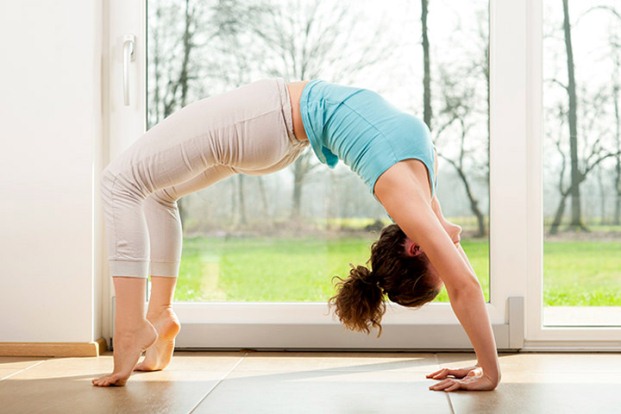Yogasana to Avoid yoga postures Heart Problems
in Cardiac Surgery
Apr 19, 2022
Yoga is extremely good for the mind and the body. The postures help in keeping your heart healthy and you fit. One must avoid postures that make your heart work too much. Other than regular exercises, there are important things to consider when treating a heart disease, like reducing stress and a healthy diet. Yoga is the exercise that can balance your life, however, if you are suffering or at risk of heart disease, you should avoid certain yoga postures.

There are few yoga postures or asana you should avoid:
- Chakrasana (Wheel pose)– Chakrasana position is a backbend requires a lot of strength to a proper breathing pattern. It puts pressure on your heart to pump blood faster and so it should be avoided.
- Halasana (Plough pose)-: Halsana position also requires your heart to circulate blood to the lower body with pressure and against gravity.
- Karnapirasana (Ear closing pose): Karnapirasana position is same to halasana, but it requires more efforts as you have to bring your legs closer to the ground with knees next to the ears.
- Sarvangasana (Shoulder stand): Sarvangasana position should be completely avoided when you are standing on your shoulders, with pressure completely on your upper body. The heart has to work against gravity for the blood circulation.
- Sirshasana (Headstand): – Sirshasana is an inverted position. The body is held upright with the support of the arms and the head touching the floor. The legs are held over the heart and hence more pressure is exerted by the heart to pump blood to the lower body.
- Viparita Karani (Simple inverted pose): Viparita position requires you to lie on your back and raise your legs and slowly lift your hips and support them with your hands. As with all the other poses, this pose may put a strain on your heart for blood circulation to the lower body as your legs are above your heart.
If you wish to include Yoga in your life and are suffering from any kind of ailment, especially heart disease, it is best recommended that you consult a specialist first.

.jpg)
.jpg)




